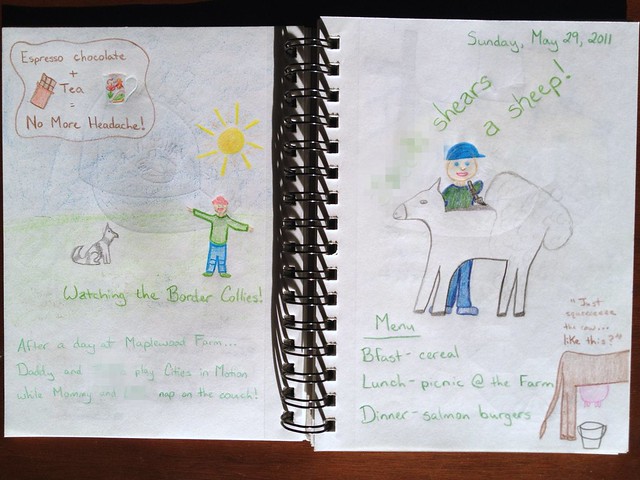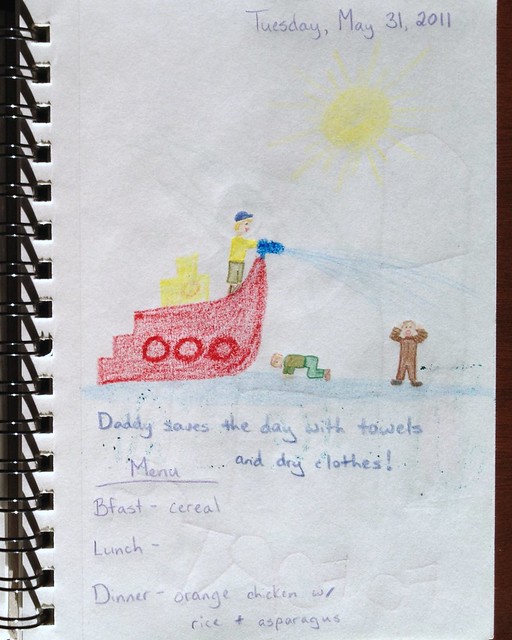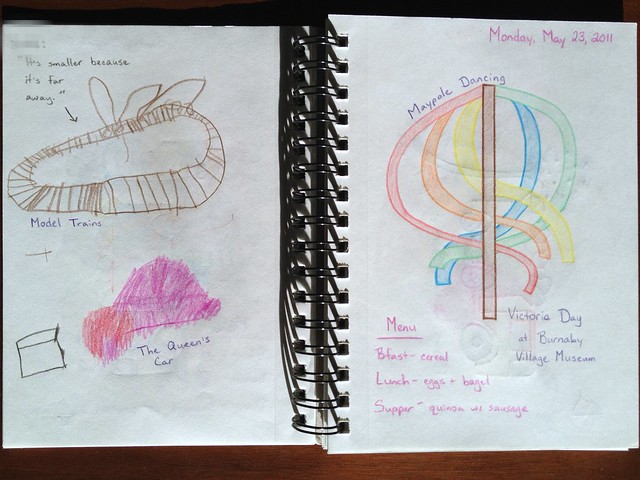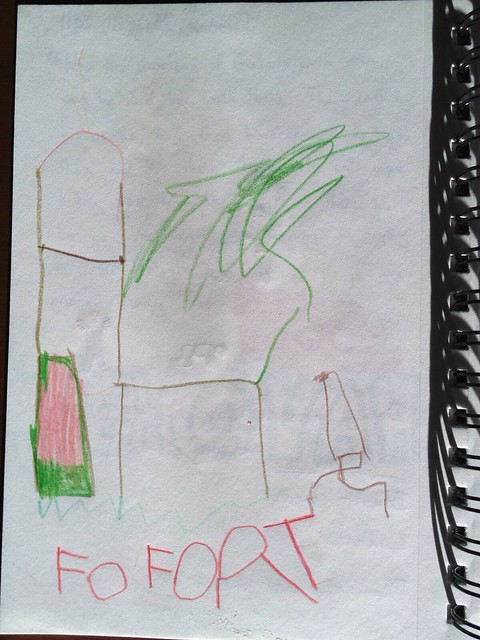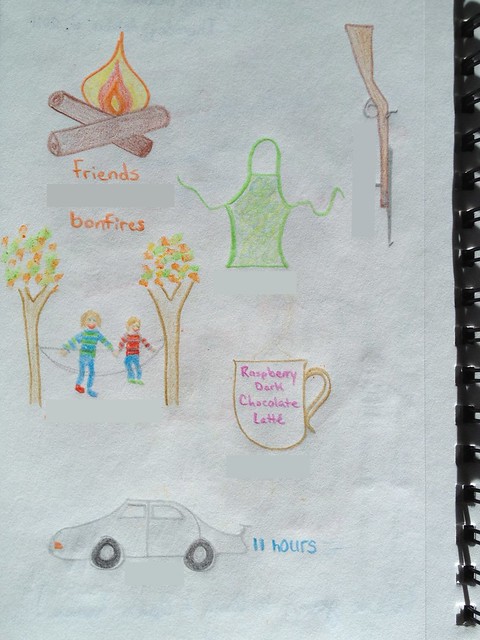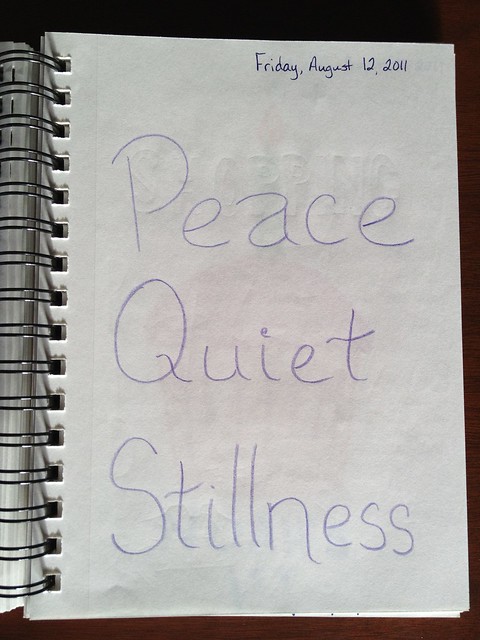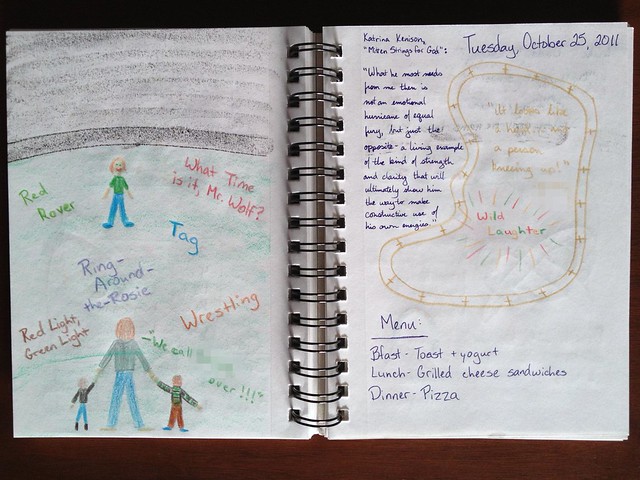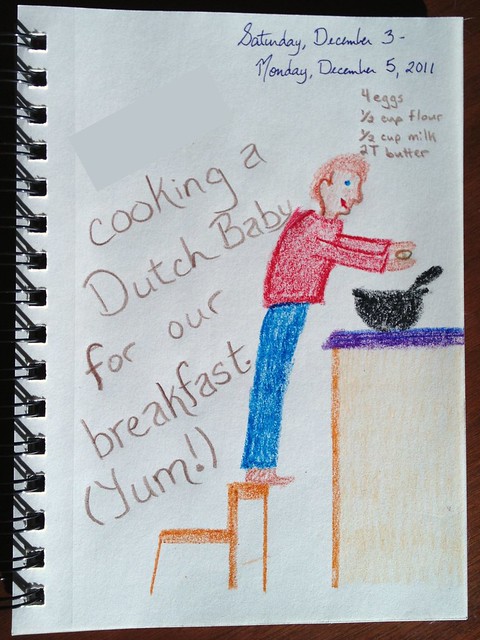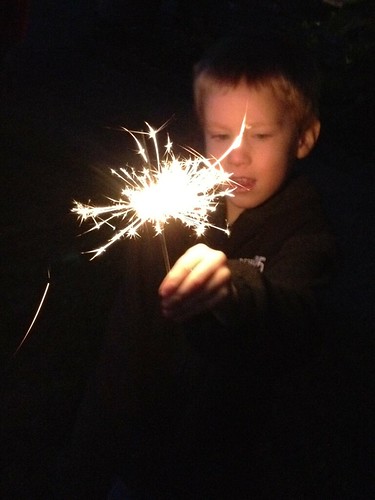This is the third in a three-part series on the "rod verses" included in Proverbs. Part 3 (What are they really saying?) was preceded by Part 1 (Taking the rod verses literally) and Part 2 (Taking other Proverbs literally).
Introduction
The five rod verses included in the Book of Proverbs are often used to support the "biblical model" of corporal punishment of children. Despite the
rich figurative language used throughout Proverbs, these rod verses are interpreted literally and then
applied in a pseudo-literal manner. These five rod verses include the following:
He who spares his rod hates his son,
but he who loves him disciplines him promptly.
(Proverbs 13:24)
Foolishness is bound up in the heart of a child;
the rod of correction will drive it far from him.
(Proverbs 22:15)
Do not withhold correction from a child,
for if you beat him with a rod, he will not die.
(Proverbs 23:13)
You shall beat him with a rod,
and deliver his soul from hell.
(Proverbs 23:14)
The rod and rebuke give wisdom,
but a child left to himself brings shame to his mother.
(Proverbs 29:15)
The word translated "rod" comes from Hebrew word "
shebet". It is used both literally and figuratively throughout Scripture.
When used literally, "shebet" refers to a shepherd's club (used to protect his sheep), a ruler's sceptre (used to represent his authority), or a tribe. When used figuratively, "shebet" refers to the authority of a person, a nation, or God.
As discussed in Part 1, a literal interpretation of the "shebet" contradicts itself. Exodus 21:12-27 is clear that a man can indeed die from being struck with a rod. Other instances of the rod being used to physically strike someone are referring only to grown adults. Boundaries are provided regarding the use of a rod on slaves. Nowhere in Scripture is there an example of a young child being struck with a rod, nor are any instructions or boundaries given to ensure its judicious use.
We will now look beyond the literal view to the deep meaning and wisdom these proverbs contain.
The Rod as Parental Authority
The Book of Proverbs is rich in figurative language. In Part 2, particular emphasis was placed on the concepts of metaphor, hyperbole, and proverbs as general principles rather than promises or guarantees. With these things in mind, it is logical that a well-known object would be used in Proverbs to bring to mind its culturally-understood symbolism.
If we replace a literal interpretation of the rod with its common figurative use of "authority", we find the rod verses speaking to the idea of parental authority over a child. Such an interpretation removes all contradictions and concerns of the literal view.
A parent's authority is one of purpose, leadership, and teaching. It comes from a place of life experience and has as its goal the idea of transferring this experience - knowledge, lessons, teachings, principles, character, morals, responsibilities, and more - over to the child as he grows. This authority is not intended to be used in an overbearing or selfish manner, but is intended for the benefit of the child.
What does that authority, practically speaking, look like? To examine this concept further, we turn again to the idea of the rod, exploring the rod as Corrective Discipline and the rod as Protective Guidance.
The Rod as Corrective Discipline
Proverbs 22:15 specifies the rod as being a "rod of correction" or, in other translations, a "rod of discipline". Here, the word correction or discipline comes from the Hebrew word "
muwcar", meaning "discipline, chastening, correction". Of all 50 instances of this word, the KJV translates it as "instruction" a total of 30 times. It is never used in a manner which specifies physical chastisement.
This word "muwcar" is translated as "instruction" in Proverbs 15:5: "A fool despises his father’s instruction, but he who receives correction is prudent." The connection here is between instruction ("muwcar") and correction ("
towkechan"), which means "rebuke, argument, reproof, correction". As with "muwcar", physical punishment is not inherent in this word.
Proverbs 23:13 states: "Do not withhold correction from a child, for if you beat him with a rod, he will not die." The two statements are used in a connective manner, with the idea of "beat him with a rod" being an illustration of the first part, "do not withhold correction". The word "beat" comes from the Hebrew word "
nakah". This is the same word used in
Jonah 4:8 to describe the sun "beating" on Jonah's head. This speaks to the idea of the sun being a constant presence, relentlessly striking down upon him. Likewise, quite apart from dealing physical blows, parental authority and discipline (correction, instruction, teaching, discipling) should be a constant presence in a child's life, even when such correction is unpleasant for the child. As we are reminded in
Hebrews, no discipline seems pleasant at the time, but it bears righteous fruit.
Punishment, as understood in our culture, is the use of an undesirable action intended to make the child feel bad in order to reduce or eliminate the desire to exhibit the same behaviour again. The focus is on control over external behaviours to achieve compliance. The word "punish" comes from the Latin "
peona", meaning "penalty". To repeatedly demand payment where payment has already been paid (on our behalf through Jesus Christ) is to negate the message of the Gospel.
Discipline is the continuous process of coming alongside the child to teach and guide them into maturity. The focus is on the internal, inspiring proper motives for heart-level obedience. It's goal is to impart knowledge, wisdom, self-control, an understanding of right from wrong, and an internal desire to choose the right course of action.
Proverbs 29:15 tells us that "the rod and rebuke give wisdom." While punishment (including spanking) can be used to modify behaviour (external), it does not impart wisdom (internal). A parent's corrective discipline draws from a much larger base of
tools and relies on a strong foundational
parent/child relationship. Physical chastisement is unnecessary as a tool to achieve the desired goals of discipline.
The Rod as Protective Guidance
Yea, though I walk through the valley of the shadow of death, I will fear no evil; For You are with me;
Your rod and Your staff, they comfort me.
-Psalm 23:4
When we consider the picture of the rod as a shepherd's rod, we find two more ideas to add to our understanding: the use of the rod as protection and as guidance.
In his book "
A Shepherd Looks at Psalm 23", shepherd and author Phillip Keller described the use of the shepherd's rod ("shebet") in protecting his sheep:
"...[T]he shepherd boy spends hours practicing with this club, learning how to throw it with amazing speed and accuracy. It becomes his main weapon of defense for both himself and his sheep.
...The sheep asserts that the owner's rod, his weapon of power, authority and defense, is a continuous comfort to him. For with it the manager is able to carry out effective control of his flock in every situation.
...There is a second dimension in which the rod is used by the shepherd for the welfare of his sheep - namely that of discipline. If anything, the club is used for this purpose perhaps more than any other. If the shepherd saw a sheep wandering away on its own, or approaching poisonous weeds, or getting too close to danger of one sort or another, the club would go whistling through the air to send the wayward animal scurrying back to the bunch."
A shepherd also carried a second instrument, a staff. In Hebrew, this word is "
mish'enah" and means support or staff. Although this word is not used in the rod verses, the idea is worth exploring in order to provide a more complete picture of a shepherd's care of his sheep. Keller described the use of the staff as well:
"The staff is essentially a symbol of the concern, the compassion that a shepherd has for his charges. No other single word can better describes its function on behalf of the flock than that it is for their comfort.
Whereas the rod conveys the concept of authority, of power, of discipline, of defense against danger, the word 'staff' speaks of all that is longsuffering and kind.
...There are three areas of sheep management in which the staff plays a most significant role. The first of these lies in drawing sheep together into an intimate relationship. The shepherd will use his staff to gently lift a newborn lamb and bring it to its mother if they become separated.
But in precisely the same way, the staff is used by the shepherd to reach out and catch individual sheep, young or old, and draw them close to himself for intimate examination. The staff is very useful this way for the shy and timid sheep that normally tend to keep at a distance from the shepherd.
The staff is also used for guiding sheep. Again and again I have seen a shepherd use his staff to guide his sheep gently into a new path or through some gate or along dangerous, difficult routes. He does not use it actually to beat the sheep. Rather, the tip of the long slender stick is laid gently against the animal's side and the pressure applied guides the sheep in the way the owner wants it to go. Thus the sheep is reassured of its proper path."
According to Keller, sheep will not lie down and rest unless they are free of all fear. Thus the rod and the staff are used only for the benefit of the sheep. At no time is either instrument used to strike the sheep. Likewise, our "rod" (parental authority, corrective discipline, and protective guidance) must ultimately be a comfort to our children, never a source of fear.
The Rod Verses Restated
Taking each of these ideas into account, how would the rod verses read if we included all of the rich meaning below the surface, with the figurative language spelled out in a more literal manner?
He who spares his [authoritative discipline and guidance] hates his son,
but he who loves him disciplines him promptly.
(Proverbs 13:24)
Foolishness is bound up in the heart of a child;
[a parent's authoritative discipline and guidance] will drive it far from him.
(Proverbs 22:15)
Do not withhold correction from a child,
for if you [constantly correct and discipline him in your authority], he will not die.
(Proverbs 23:13)
You shall [constantly correct and discipline him in your authority],
and deliver his soul from hell.
(Proverbs 23:14)
[A parent's authoritative discipline] and rebuke give wisdom,
but a child left to himself brings shame to his mother.
(Proverbs 29:15)
Thus we have explored the concept of metaphor and how it is used in the rod verses. The two other figurative concepts mentioned earlier - hyperbole and generalities - come into play as well. Focusing particularly on Proverbs 23:13-14, we see it stated that this idea of authoritative discipline will cause the child to "not die" and will "deliver his soul from hell". This is both hyperbole (exaggeration) and generality. We understand that a parent does not literally have the power of salvation; Scripture tells us that only the Grace of God through faith in Jesus Christ can bring about our salvation. Furthermore, proper discipline does not guarantee the salvation of a child.
As parents, however, we have a weighty responsibility and much influence over our children. We must discipline them, instruct them, teach them, guide them, pray for them, and steep them in the knowledge and love of God, all while understanding that their ultimate salvation will come from Christ alone - and indeed, can and has come to many
in spite of their parents' failure to properly disciple them.
Further exploration of Proverbs 23:14 leads to another interesting insight. The word "hell" comes from the Hebrew word "
she'owl" and has a number of meanings:
- sheol, underworld, grave, hell, pit
- Sheol - the OT designation for the abode of the dead
- place of no return
- without praise of God
- wicked sent there for punishment
- righteous not abandoned to it
- of the place of exile (fig)
- of extreme degradation in sin
Here we find the idea of "hell" as the "abode of the [eternally] dead" expanded to also include the meanings "without praise of God" and "of extreme degradation in sin". A parent's authoritative discipline can not only point them towards God (who ultimately has power over their salvation), but can also assist in preventing the child from being "without praise of God" and from entering into "extreme degradation in sin".
The Rest of the Bible
While God's Word is inspired and unchanging, it has also been subject to much cultural interpretation over time. The rod verses have been burdened with man-made ideas of corporal punishment as it relates to children, and much of the wisdom in these verses has been overlooked as a result. When we examine the rod verses alongside the rest of Scripture, we find a very different message than the one usually drawn from them, one of gentleness and mercy alongside authority. Consider the following passages:
At that time the disciples came to Jesus, saying, “Who then is greatest in the kingdom of heaven?” Then Jesus called a little child to Him, set him in the midst of them, and said, “Assuredly, I say to you, unless you are converted and become as little children, you will by no means enter the kingdom of heaven. Therefore whoever humbles himself as this little child is the greatest in the kingdom of heaven. Whoever receives one little child like this in My name receives Me. Whoever causes one of these little ones who believe in Me to sin, it would be better for him if a millstone were hung around his neck, and he were drowned in the depth of the sea. Woe to the world because of offenses! For offenses must come, but woe to that man by whom the offense comes!
(Matthew 18:1-7)
Then they brought little children to Him, that He might touch them; but the disciples rebuked those who brought them. But when Jesus saw it, He was greatly displeased and said to them, “Let the little children come to Me, and do not forbid them; for of such is the kingdom of God. Assuredly, I say to you, whoever does not receive the kingdom of God as a little child will by no means enter it.” And He took them up in His arms, laid His hands on them, and blessed them.
(Mark 10:13-16)
And you, fathers, do not provoke your children to wrath, but bring them up in the training and admonition of the Lord.
(Ephesians 6:4)
Fathers, do not provoke your children, lest they become discouraged.
(Colossians 3:21)
But we proved to be gentle among you, as a nursing mother tenderly cares for her own children.
(1 Thessalonians 2:7)
There is no fear in love. But perfect love drives out fear, because fear has to do with punishment. The one who fears is not made perfect in love.
(1 John 4:18)
Be completely humble and gentle; be patient, bearing with one another in love.
(Ephesians 4:2)
Then his master, after he had called him, said to him, ‘You wicked servant! I forgave you all that debt because you begged me. Should you not also have had compassion on your fellow servant, just as I had pity on you?’
(Matthew 18:32-33)
Then the scribes and Pharisees brought to Him a woman caught in adultery. And when they had set her in the midst, they said to Him, “Teacher, this woman was caught in adultery, in the very act. Now Moses, in the law, commanded us that such should be stoned. But what do You say?” This they said, testing Him, that they might have something of which to accuse Him. But Jesus stooped down and wrote on the ground with His finger, as though He did not hear. So when they continued asking Him, He raised Himself up and said to them, “He who is without sin among you, let him throw a stone at her first.”
(John 8:3-7)
Do not repay anyone evil for evil. Be careful to do what is right in the eyes of everyone. If it is possible, as far as it depends on you, live at peace with everyone. Do not take revenge, my dear friends, but leave room for God’s wrath, for it is written: “It is mine to avenge; I will repay,” says the Lord. On the contrary:
“If your enemy is hungry, feed him;
if he is thirsty, give him something to drink.
In doing this, you will heap burning coals on his head.”
Do not be overcome by evil, but overcome evil with good.
(Romans 12:17-21)
What do you want? Shall I come to you with a rod, or in love and a spirit of gentleness?
(1 Corinthians 4:21)
Therefore, whatever you want men to do to you, do also to them, for this is the Law and the Prophets.
(Matthew 7:12)
Summary
A literal interpretation of the rod verses fails to reveal the rich meaning, wisdom, and truth the proverbs contain. The literal interpretation was examined in
Part 1, while the figurative language found throughout the Book of Proverbs was examined in
Part 2. Part 3 has looked beyond the literal interpretation to the deeper meaning these verses hold.
The rod was, at the time the Book of Proverbs was written, a culturally-understood representation of authority. In the rod verses, this speaks to the idea of
parental authority over a child. This authority is one of vision, leadership, and instruction, with the parent's life experience (knowledge, principles, right-living, and more) transferred from the parent to the child as he grows.
The rod verses also speak to the idea of
corrective discipline. Examining the Hebrew words behind these concepts reveals nothing that points specifically to physical chastisement. Rather, we find the idea of a parent's authoritative discipline and correction being a constant presence in a child's life. From a foundation of relationship, this discipline seeks to impart wisdom and generate internal change rather than merely modify external behaviour.
Finally, when examining the picture of the shepherd's rod, along with his co-tool, the staff, we discover the idea of the rod as
protective guidance. The shepherd's rod was used to defend and discipline his sheep, and was a symbol of his power, authority, and defense. The shepherd's staff was used to gently lift and guide his sheep, and was a symbol of comfort and compassion. Neither tool was ever used to strike the sheep. Likewise, a parent should use his authority not to instil fear, but to gently protect, guide, and comfort them.
In short, the rod is a picture of a parent's constant authoritative discipline as he gently guides his child along the right path.
For further study:
Thy Rod and Thy Staff They Comfort Me: Christians and the spanking controversy by Samuel Martin
A Shepherd Looks at Psalm 23 by Phillip Keller
A Study of "The Rod" Scriptures
An Answer to Proverbs 23 and 'beatest'
Christian Child Discipline: Is Spanking Biblical?
Train up a Child in Whose Way?


